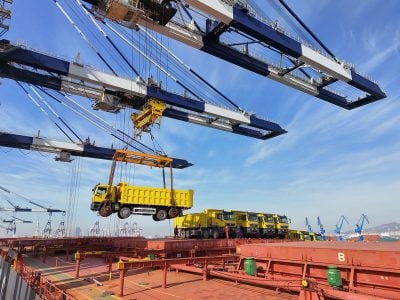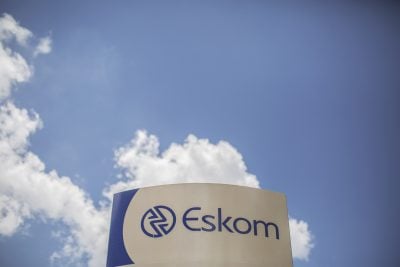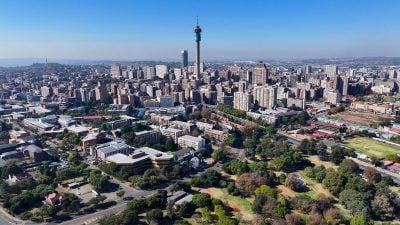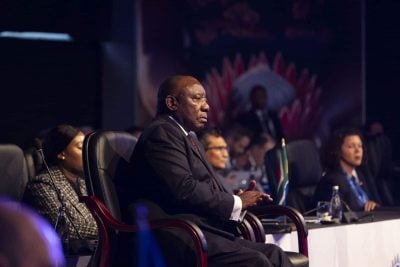Sierra Leoneans went to the polls on 7 March. The incumbent president, Ernest Bai Koroma, will not be on the ballot.
This is no mean feat. A campaign to allow him to stay on beyond the constitutionally mandated two five-year terms started as early as 2012. A review of the constitution, which began in July 2013 and took four years to complete, was controversial in part because of speculations Koroma might be desirous of staying longer in office.
More recently, about a year ago, there were reports of plans by the ruling All People’s Congress (APC) party to tamper with the electoral calendar. At about the same time, Koroma was endorsed by the youth wing of his party as “chairman for life”, further fuelling speculations he still planned to hold on to the reins of power in one form or another.
The funding of just about half of the estimated $48m cost of the polls by his administration, supposedly because of strained finances, and a seemingly less than enthusiastic pace of disbursement to the National Electoral Commission (NEC), have been viewed with suspicion as well. Koroma’s officials dismiss such insinuations, averring that the outgoing president never aspired to serve a third term
There is a precedent for the “third-term” phenomenon in West Africa. Former President Olusegun Obasanjo of Nigeria was believed to have desired a third term as well; in 2006 the country’s Senate rejected a move by his supporters to amend the constitution to allow him to run for office again.
There are interesting parallels. Just as in the Sierra Leonean case years later, there were indicators to suggest Obasanjo might have “tried his luck” if there had not been much resistance. Similarly, Koroma was perennially at loggerheads with his former deputy, Samuel Sam-Sumana.
Accusing him of fomenting violence and anti-party activities, Koroma fired him in March 2015. To this day, Sam-Sumana insists it was because he opposed his former principal’s third-term agenda.
By and large, however, West African countries are proving to be excellent democratic exemplars. Neighbouring Liberia, which had its first successful civilian-to-civilian transition in January, is a sterling example of how much better things are becoming.
The trail Liberia just blazed, however, was trodden long ago by Sierra Leone in 2007, when President Ahmad Tejan Kabbah passed the baton to Koroma. What the Sierra Leonean case proves is that even a powerful president will struggle if they try to go against the will of the people or flout the law.
Opponents line up
The ruling APC chose the foreign minister, Samura Kamara, as its presidential flag bearer in October. The other main candidate in the presidential race is Julius Maada Bio of the Sierra Leone People’s Party (SLPP), who Koroma beat in 2012.
Bio could prove a formidable opponent for Kamara. Even so, what could potentially make the upcoming polls very interesting is that perhaps neither of the two establishment candidates will be able to secure a firm win. Kandeh Kolleh Yumkella, the increasingly popular technocratic candidate and former United Nations undersecretary general, could eat into the support of the SLPP, his former party, under the auspices of the National Grand Coalition, the political party he set up after his defection.
Perhaps in recognition of the threat he poses, the APC has challenged Yumkella’s candidacy in the Supreme Court, arguing that his status as a dual national of Sierra Leone and the US disqualifies him from running, even though he has renounced his US citizenship. The court had not reached a decision at time of writing.
Alliance Democratic Party’s Mohamed Kamarainba Mansaray, who was once an APC stalwart, is a potential threat to the ruling party in the north. The trio of Kamara, Bio, and Yumkella are believed to be the real contenders in an expected close vote, though. Some Sierra Leoneans want a full departure from the Koroma era. Thus, the president’s avid support for Kamara may prove to be a disadvantage.
The Chinese government has been accused of bankrolling the ruling party’s candidate and Chinese citizens have been campaigning for him, much to the discomfort of some locals. For SLPP’s Bio, there is little evidence his popularity has increased since his last attempt at the presidency five years ago. As defectors from the two leading parties, Yumkella and Kamarainba make the poll tighter, raising the likelihood of rigging and violence.
Economy needs a boost
International prices for iron ore, the country’s key export has been in the ascendant lately. With one of the country’s two major iron ore mines closed, however, the improved price outlook has not had as much revenue impact as it could have.
To shore up its finances, the Koroma administration secured $224.2m from the IMF in July 2017. As part of the conditions, the authorities were forced to cut fuel subsidies, with the effects more painfully felt by the masses as oil prices rose.
Never mind that the awful experiences from the Ebola epidemic and more recently, a massive mudslide in the capital, have been greatly dampening for the economy. Together with the mining sector slump, the central bank estimates economic growth slowed to 5.6% in 2017, from 6.1% the year before. Annual consumer inflation rose significantly in 2017, at an average of 18.6% (Jan–Nov) from 10.8% in 2016. A 25% depreciation in the country’s currency, the leone, was one reason for this.
“Economic conditions heading into the elections leave a largely sour reading,” says Wale Okunrinboye, a fixed-income and currency specialist at Ecobank, a pan-African bank. “Set against an uninspiring economic scorecard, amid fractures within the ruling APC, the March 2018 elections look set to be a keenly contested affair.”
Rafiq Raji
Want to continue reading? Subscribe today.
You've read all your free articles for this month! Subscribe now to enjoy full access to our content.
Digital Monthly
£8.00 / month
Receive full unlimited access to our articles, opinions, podcasts and more.
Digital Yearly
£70.00 / year
Our best value offer - save £26 and gain access to all of our digital content for an entire year!
 Sign in with Google
Sign in with Google 


